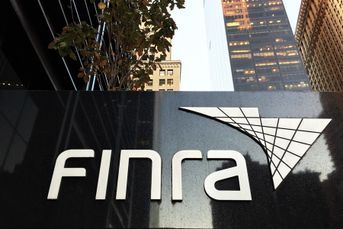Silk purse in penny stocks
Tech stocks have been decimated by the market downturn, but Jeff Baclet has kept the faith. After all,…
Tech stocks have been decimated by the market downturn, but Jeff Baclet has kept the faith.
After all, he’s paid by companies that have slipped so far in value that they’ve fallen into the netherworld of penny stocks.
Selling for less than $5 a share, they dwell in the low-rent district of the Nasdaq’s Over-the-Counter Bulletin Board and the Pink Sheets – thinly traded, rarely followed by analysts, little known to investors and subject to wild bursts of volatility.
That’s where Mr. Baclet, 31, comes in.
Using a mix of Bible-thumping zeal and unrelenting optimism, he hypes a stable of companies for a fee through Donner Corp. International. He founded the Santa Ana, Calif., broker-dealer after a peripatetic career on the fringes of the financial services industry.
“It’s like a public relations firm,” says David E. Rubbins, a New York securities lawyer.
“The SEC would likely look hard at this kind of arrangement,” adds Barry Barbash, a partner in Washington with Shearman & Sterling who once ran the Securities and Exchange Commission’s division of investment management.
Full disclosure
That arrangement is strictly cash, carry and buyer beware.
Given the precipitous decline of the Nasdaq Composite Index since its peak last year, the OTC market has become the elephant’s graveyard of dozens of once-highflying tech companies. Many are willing to shell out big bucks to try to regain some of the glory of the tech boom.
Donner is one of about 200 firms that bottom-feed on the hopes and dreams of wannabe moguls, according to Key Ramsey, chief executive of Knobias.com, a website he started after being victimized in a penny stock scam. He follows 6,300 micro-cap companies trading publicly on the Nasdaq Small-Cap market and the Pink Sheets.
He says that Mr. Baclet and other brokers who tout penny stocks for a fee are taking advantage of a legal loophole to pump the price of a stock.
“Regulators we’ve talked to wish this would go away,” says Mr. Ramsey.
God and money
Mr. Baclet, however, is unlikely to disappear anytime soon. He opened the doors of his broker-dealer in 1996, and he has never run afoul of Securities and Exchange Commission regulations, according to the federal agency.
However, some of the seven securities firms, one insurance company and two realty firms he worked for between 1989 and 1996 have.
Capital International Securities Group Inc. of Boca Raton, Fla., the last company he worked for before opening Donner, was hit with a class action in 1999 for allegedly defrauding investors in a pump-and-dump stock scheme that ran from August 1997 to August 1999.
Another of Mr. Baclet’s former Florida employers, GKN Securities Corp., was ordered in 1997 to pay $2.1 million in fines and restitution, according to NASD Regulation Inc., the independent enforcement arm of the National Association of Securities Dealers.
Between December 1993 and April 1996, the firm and 29 brokers and supervisors allegedly controlled the immediate after-market trading in eight stocks it underwrote, and excessively inflated those prices, according to the NASDR.
Mr. Baclet worked for Capital International Securities from July 1995 to December 1996 and GKN Securities from August to November 1994. He was not named as a defendant in the class action against Capital International Securities, nor did the NASD name or fine him for a role in the GKN Securities case.
As well as pumping the hopes and dreams of penny stock moguls, Mr. Baclet mixes Christian evangelism with his investment advice.
His website, for example, provides a biblical justification to shun trading on margin and gives investors an opportunity to donate to a fundamentalist Christian charity that rails against Hollywood, pornography and homosexuals.
Sliding scale
For companies that pay a one-time fee, ranging between $3,000 and $7,000, Donner publishes press releases and “research reports” touting its penny stocks.
The higher Mr. Baclet can drive the stock, the greater the reward, which can include stock options, monthly retainers and fees that typically rise on a sliding scale along with the stock price.
Mr. Baclet is quick to point out that his fee arrangements are fully disclosed in accordance with SEC rules.
“It’s clear it’s a fee-paid [service],” he says.
However, the information has a habit of finding its way into investor chat rooms or onto computer bulletin boards, where the disclaimer is sometimes not mentioned or has been deleted.
In the case of Tickets.com Inc. (TIXX), an online ticket service, Morgan Stanley Dean Witter analysts gushed about the Costa Mesa, Calif., company when it handled the initial public offering Nov. 4, 1999. The stock jumped to $32 a share, from an IPO price of $12.50, before closing that day at $19.25 a share.
Thursday the stock closed at 39 cents a share, and the Nasdaq says the company is in line to be taken off the exchange for failing to meet minimum listing requirements.
Tickets.com was caught in last year’s tech-stock riptide and has traded below $1 since November.
Donner took the company on as a client in December after the NASD warned Tickets.com for the first time that it was in danger of being delisted.
On Jan. 22, Donner issued a press release that glowingly described the company’s prospects.
Donner’s research report on Tickets.com didn’t include a projection of the company’s future earnings on its cover or on any of its pages. Such projections are standard fare for analysts’ reports.
The report does include, however, a quote from the Book of Jeremiah.
“Before I formed you in the womb I knew you; before you were born I sanctified you,” reads the quote, which appears under a box listing Tickets.com’s revenue.
The report gave the stock a “speculative buy” rating.
According to ratings group First Call Corp., a “speculative buy” rating falls between a rating of “buy” and “hold” and means a stock has more risk.
“We believe Tickets.com is highly undervalued considering it is moving forward with a business plan to revolutionize the online ticketing industry,” Donner wrote.
But in its annual report this month, Tickets.com warned investors that it soon might cease to exist.
“If we are unable to obtain additional funding on satisfactory terms in the near future, we’ll have to modify our business plan, reduce or discontinue some or all of our operations, seek a buyer for substantially all of our assets or seek bankruptcy protection,” the company cautioned.
Even so, Donner’s January press release caused a stir among investors in chat rooms on Yahoo! Inc.’s financial website.
A volatile swing
The morning the press release was published by an online news service, one stock jockey, Mtanda_ 2000, copied it in full, without the disclaimer, in a message with the subject as “good buy recommendation.” The identity of the writer could not be learned.
Over three days, Jan. 19, 22 and 23, Tickets.com saw its volume surge, respectively, from 374,000 shares, to 829,000 shares, to 2.2 million shares. The price climbed to 84 cents over that time, from 50 cents.
The next day, both the volume and price fell back – to 925,000 and 78 cents.
“Like a lot of penny stocks, it fluctuates quite a lot,” says David Kathman, a stock analyst who has watched, but not formally covered, Tickets.com for Morningstar.com.
Donner would have benefited greatly from any strong move in the stock price, according to the release. It said Tickets.com was to pay Donner 1,000 shares of stock for its work.
If the stock had closed at $10, $15, $20 or $25, Donner stood to receive an additional 1,000 shares of stock for reaching each plateau.
In another release, Donner disclosed that it would receive $7,000, plus a $2,500 monthly retainer.
But in its research report, it says merely that it received a $5,250 due diligence fee and a $6,000 retainer. The report also made no mention of shares potentially owed to Donner.
“They’re following the letter of the law, but not the spirit,” says Mr. Kathman.
Bullish
Mr. Baclet says that in all but one of the sectors it covers, his team has no specialists. He says, “It’s a team effort when we go into a project.”
He likens his practice of taking a fee to cover companies with market caps barely in the millions to Wall Street’s practice of refusing to write “sell” recommendations of companies worth billions.
Indeed, once a business has signed up with Mr. Baclet, it is just about guaranteed to get a bullish rating.
Donner has pulled at least one company from the list – Far East Adventures, a phone card company that Mr. Baclet says didn’t give his analysts correct financial information.
Since March 6, 2000, Donner has produced at least 104 favorable press releases and not one “hold” or “sell” rating, according to a search of Dow Jones Interactive.
In that time, the Nasdaq Composite Index has fallen more than 60%, and all 18 companies that Donner lists as clients on its website have seen their prices tank.
Mr. Baclet says huge swings in stock price are part of investing in penny stocks, and he insists that he is not a stock touter. In fact, in the past, his clients have been winners, he says.
Learn more about reprints and licensing for this article.








